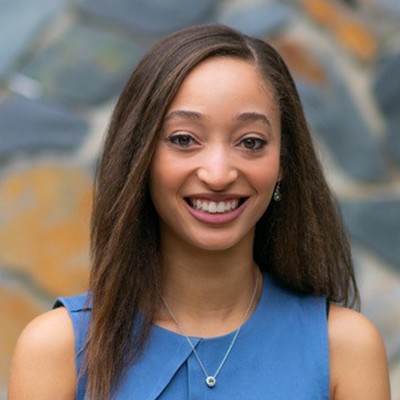
Sierra
Atwater
Hometown: Pittsboro, NC
Major: Biology, with a minor in Chemistry
Research Interest:
“Some of my favorite moments in the program came from the outreach and mentorship we were able to provide to further promote the mission of CSS: increasing the diversity of STEM fields by supporting underrepresented students.
GRADUATE/PROFESSIONAL SCHOOL:
Duke School of Medicine (MD)
WHAT ARE YOUR FUTURE GOALS?
In the future, I hope to be pediatric oncologist at an academic institution.
WHAT DREW YOU TO THE CSS PROGRAM?
As a member of the inaugural class, I honestly didn’t know much about the program before interviewing. I did research on the Meyerhoff Scholars program and was excited about the opportunity to develop with a cohort of diverse students and supportive faculty.
WHAT WAS YOUR FAVORITE CSS EXPERIENCE OR MEMORY?
I have so many great memories from the CSS program but I will try and limit this to one of my favorites. My senior year in the program I worked this event with another CSS scholar where we talked to high school students from disadvantaged schools across the state about the program. These high schools predominantly serviced students of color and UNC was partnering with them to help expose their students to college opportunities. I vividly remember the high school counselor warning me that the students may not be very engaged during our talk. We opened up the talk by asking the high schoolers broadly about their interests and got various answers (sports, music, dance etc.). We then asked them about problems that they felt like needed to be addressed in the world and we also heard a variety of responses (hunger, global warming, police brutality, etc.). The cool part of the presentation is when we asked them how do you go about solving these problems. Most students weren’t sure at first but by the end of the talk we were able to show them how applicable and diverse the field of STEM is and how for each problem they described, we had a CSS student doing some research related to solving it. The students were so engaged, excited, and after the presentation came up and asked us what they could do in high school to set them up for success in a scientific career. It is crazy because no one had ever told these students that they could be scientists or that their interests could be fulfilled in a science career. I know you are probably wondering what this has to do with the CSS program. I figured on this website you could find stories about the academic benefits and research opportunities, but some of my favorite moments came from the outreach and mentorship we were able to provide to further promote the mission of CSS: increasing the diversity of STEM fields by supporting underrepresented students.
HOW HAS CSS SHAPED YOUR CAREER GOALS?
Because of CSS, I was able to develop close relationships with faculty at UNC. I had no concept of what research was like in high school so this program helped me to establish mentors that could provide connections for me to utilize to explore my interests. I participated in summer research for 3 summers at Johns Hopkins University and at the University of Colorado at Boulder where I conducted research on cancer cell metastasis and Hypertrophic Cardiomyopathy (the leading cause of sudden cardiac death in young athletes). After undergrad, I pursued a postbac research experience with the NIH where I studied autoimmune disorders like Lupus. If it wasn’t for CSS I would have never been exposed to research and would not even be pursuing medicine currently. I chose to attend Duke University School of Medicine because the curriculum specifically grants you a year of uninterrupted time to conduct research in a field of your interest. I plan to become a physician scientist at some stage in my future career and I can’t help but attribute my success to the CSS Program.
AWARDS/HONORS:
- Phi Beta Kappa
- Harvey E. Beech Outstanding Senior Award, UNC GAA
